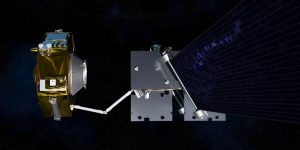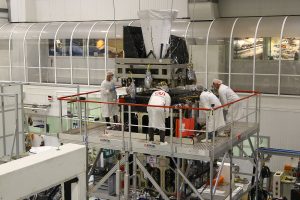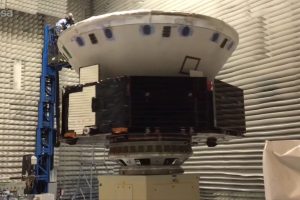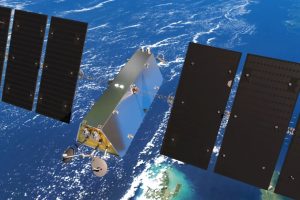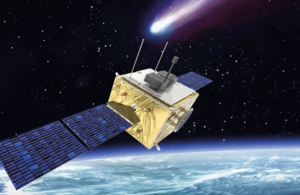It builds on EROSS (European Robotic Orbital Support Services) and the idea is to support a range of operations in orbit, including controlled re-entry of space debris, robotic manipulation, the extension of a satellite’s operational life, in-orbit re-fuelling and general inspection duties.
The worthy aim is that such servicing of space vehicles means that they should no longer be abandoned in orbit, but can instead evolve in service.
With work staring in February, an in-orbit demonstration is expected by 2026. It will aim to include the complete orbital rendezvous phase of a Servicer satellite with a collaborative Client satellite prepared for On-Orbit Servicing, says Thales.
Specifically, this will be the third and last phase for the Strategic Research Cluster (SRC) on Space Robotics Technologies set up by the European Union as part of Horizon 2020.
The first phase involved six projects related to the development of technologies dedicated to robotics and in-orbit operations. Thales Alenia Space was leading I3DS (Integrated 3D sensors), a sensor suite for robotic missions. The second step, currently in its final phase, was to integrate the previously developed building blocks into more specific applications, through three projects oriented towards modular and reconfigurable spacecraft (MOSAR), in-orbit assembly (PULSAR) and on-orbit servicing (EROSS).
Thales Alenia Space is a Joint Venture between Thales (67%) and Leonardo (33%) and it will also be working with other third-parties on the project.
UK in PERASPERA
The full consortium involved includes: Thales Alenia Space in France that will supervise the Overall System, contributing to the Guidance, Navigation and Control functions for this new type of mission, while Thales Alenia Space in Italy will handle the Mission design, the German Aerospace Center (DLR) the Robotics aspects, GMV (Spain) the Robotics Autonomy Systems, PIAP Space (Poland) Gripping Mechanisms and SINTEF (Norway) the Software Architecture.
UK involvement will be elsewhere.
Similar to the first two phases of the SRC, says the company, the PERASPERA consortium of Space Agencies in Europe (United Kingdom, Germany, France, Italy, Spain, Poland and the European Space Agency) will be contributing to the technical review of the EROSS+ project, in support to the European Commission services.
 Electronics Weekly Electronics Design & Components Tech News
Electronics Weekly Electronics Design & Components Tech News
